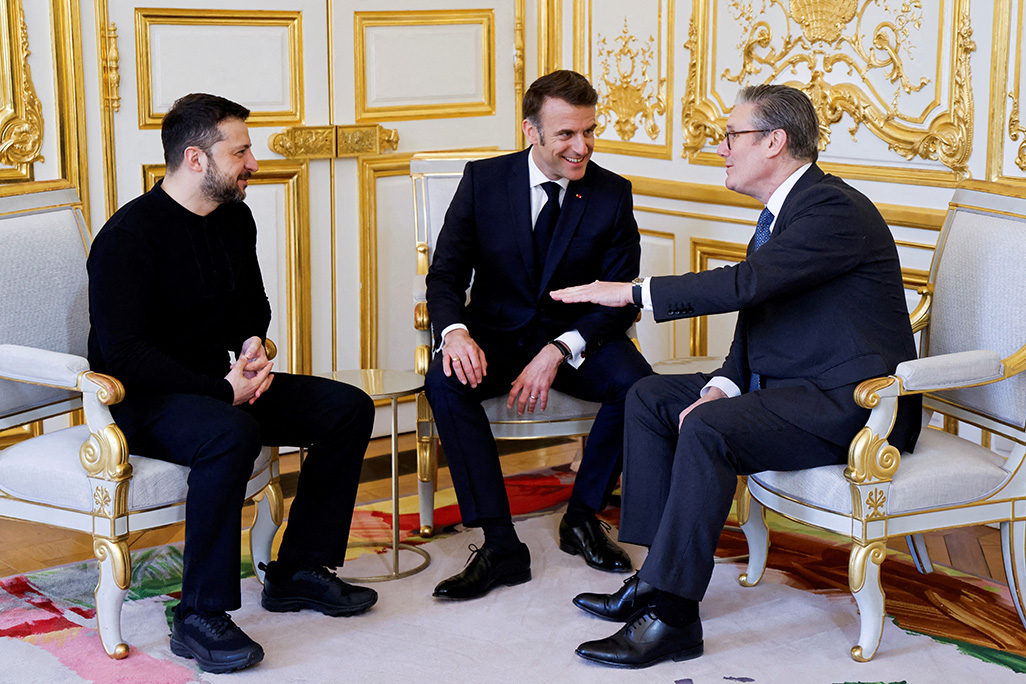European leaders made the right decision in Paris on Thursday. More than two dozen heads of state and government unanimously agreed that sanctions on Moscow should remain until “peace has clearly been established.” Despite the much-trumpeted ceasefire agreements brokered by the United States – first suspending attacks on energy infrastructure and subsequently a moratorium on attacks in the Black Sea – Russia’s missile and drone attacks on civilian targets continued.
The deal banged out in Riyadh earlier this week when American officials had three days of separate talks with officials from Ukraine and Russia is restricted to the Black Sea where Ukraine had an advantage. A White House announcement said the two sides agreed “to ensure safe navigation, eliminate the use of force and prevent the use of commercial vessels for military purposes in the Black Sea.” Hours after the agreement, as if to illustrate its bad faith, Moscow sent drones into Kharkiv destroying apartments and injuring 21 people. After the agreement on the energy infrastructure, it fired missiles on Kyiv killing a young family.
The Black Sea moratorium suits Russia which wants a free passage for its oil tankers. Nevertheless, Ukraine President Volodymyr Zelensky confirmed that Ukraine had agreed to stop using military force in the Black Sea. Moscow, meanwhile, issued a statement demanding the lifting of a set of sanctions in order to agree to the partial ceasefire. It demanded the lifting of sanctions on the state agricultural bank and other financial institutions, on companies exporting grain and fertilisers as well as the re-connection of the firms to the Swift international payment system.
US President Donald Trump said he would examine the possibility of rolling back some sanctions in order to get Russia to sign up to the partial deal. “We are looking at all of them,” he said, something that could not have gone down well in European capitals. This was made very clear by President Emmanuel Macron, after the third meeting of ‘coalition of the willing’ on Thursday in Paris that was also attended by Zelensky.
While Ukraine had “the courage to accept an unconditional 30-day ceasefire,” there had been no Russian response. “There have just been new conditions posed for a much more limited and hypothetical ceasefire,” said Macron. Briefing journalists after the meeting, British PM Keir Starmer said “it is clear the Russians are filibustering, they are playing games, and they are playing for time.”
With President Trump adopting a very conciliatory approach to Russia, it is extremely important that the coalition of the willing has remained steadfastly by the side of Ukraine and will not entertain the idea of lifting sanctions. In Paris Starmer had spoken about “accelerating new tougher sanctions,” while German Chancellor Olaf Scholz was clear that lifting sanctions on Russia “makes no sense” as long as peace had not been achieved.
Europe must not budge from this position, as it is now the only support Ukraine can rely on.






Click here to change your cookie preferences